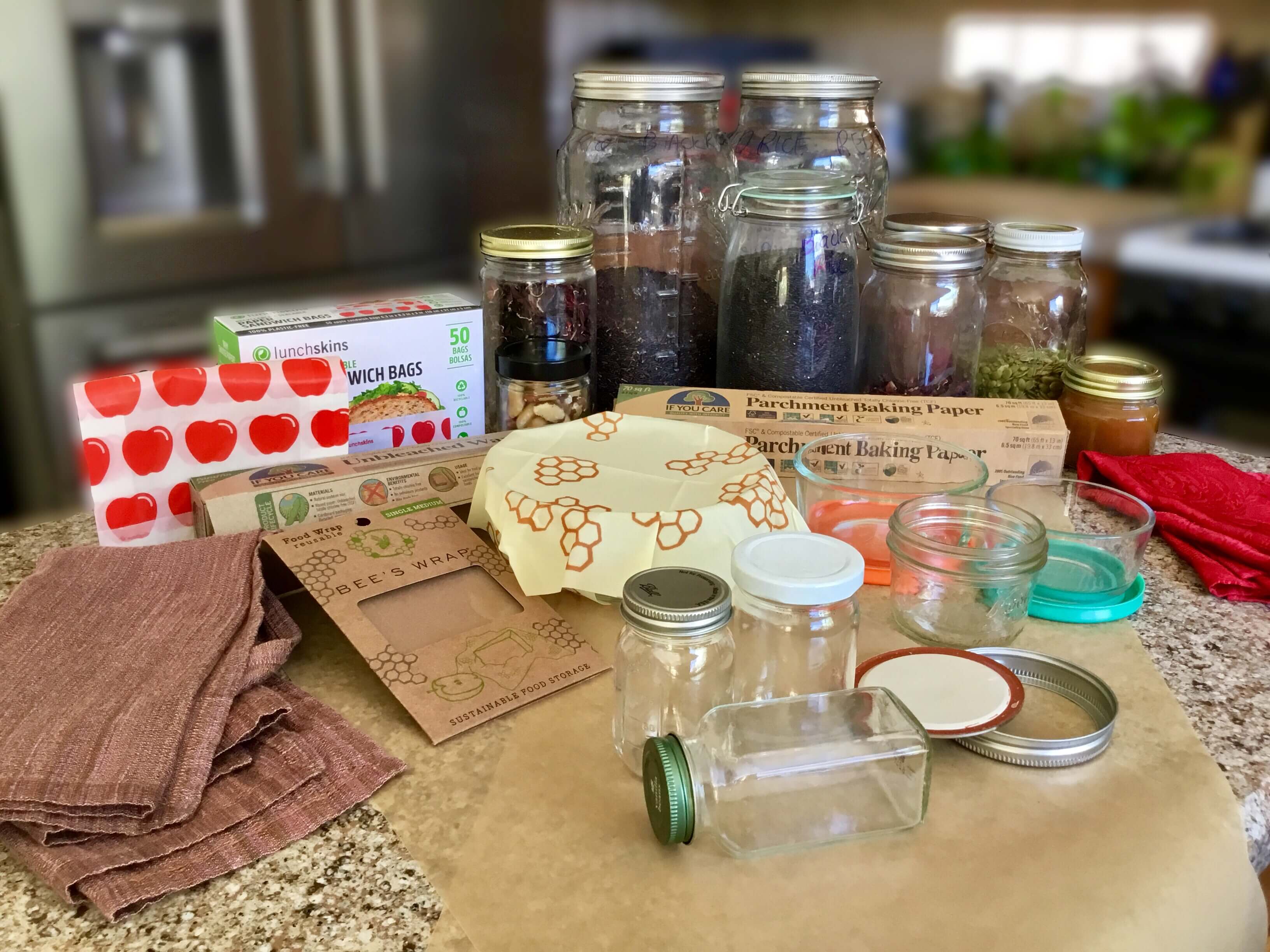Four eco-friendly tips to green your kitchen without an expensive remodel
By Karen Langston
Life may be created in the bedroom, but the kitchen is where life unfolds and grows. It’s where friends and families gather over meals, and share in conversations and celebrations. The kitchen is also becoming center stage for sustainability. Can’t afford a remodel? Try these tips to green your kitchen without the expensive makeover.
Upgrade your Appliances
If you have a bit of a budget, upgrade your kitchen appliances to more energy-efficient, eco-friendly options. Check out the APS Appliance Usage Chart to see how your appliances rank. Energy Star helps you find the best energy-efficient appliances, and allows you to calculate your appliance’s wattage and add in your local utility rates to estimate annual costs to operate an appliance.
Cook Smart and Healthy
Instead of running your oven to heat smaller meals, invest in a toaster oven and a slow cooker. These will emit less heat, especially during Arizona’s hot weather, and reduce your electric bill. According to APS, cooking a potato in an electric oven costs about 10 cents, compared to 5 cents in a toaster oven. Add a lid to your pot or pan while cooking to keep the heat from escaping, and turn the appliance off about 10 minutes before it is ready and let the heat inside finish cooking your food.
Take inventory of your cookware. Studies show that non-stick coated surfaces containing polytetrafluoroethylene (PTFE), Perfluorooctanoic acid (PFOA and C8) and similar chemicals such as fluorotelomers are leaching into our environment and drinking water, and are associated with some cancers.
Instead, properly dispose of non-stick pans and invest in quality stainless steel or cast-iron cookware. If properly cared for, these types of healthier cookware will last for generations. For quality stainless steel cookware, look for a stamp containing a “300” series on the bottom. Note: If you suffer from hemochromatosis, do not use cast iron cookware.
Wrap and Store Green
Are you still using plastic? Plastic containers are the worst for the environment, wildlife and your health. Plastic (even BPA-free) contains xenoestrogens, which are known to disrupt our hormones. A U.S. Centers for Disease Control study found nearly 93% of people tested positive for bisphenol-A in their urine. Invest in glass and stainless-steel containers and canning jars for storing food, packing lunches and storing leftovers. The plastic lids on glass containers, once worn out, can be replaced with fabric beeswax cloths or silicone lids.
Swap aluminum foil, plastic wrap and plastic baggies with non-bleached parchment and waxed paper for all your cooking, wrapping and storing needs. Bee’s Wrap Reusable Food Storage Wraps come in different sizes and can wrap and keep fresh a sandwich, cheese and other dry-type foods. The company If You Care carries an assortment of non-bleached kitchen products. The company FreshPaper keeps your fresh bakery bread fresher longer while honoring the environment. Add Vejibags to your reusable shopping bags for your produce. Vejibags are reusable 100% organic cotton and keep produce vibrant for up to two weeks.
Clean Smart and Green
If you are a large family, run the dishwasher overnight only when it is full, on the “economy” cycle, and skip the heat drying option. If you are household of two, washing dishes by hand by filling one side of the sink with eco-friendly dish soap and the other with water for rinsing results in energy and water saved—and less green you have to dish out to the utility company.
When it comes to cleaning your kitchen, ditch the chemicals in conventional products. Studies have proven that these chemicals can result in health problems including respiratory, hormone disruption and cancer. Not to mention the unnecessary environmental impact. In our home, our cleaning staples are vinegar, baking soda and essential oils.
If you do not want to make your own products, companies like Seventh Generation, ECOS and Honest do a bang-up job keeping your kitchen clean, healthy and eco-friendly.
Use reusable mop pads, dish towels, cloths and sponges to keep your kitchen clean, instead of disposables and paper towels. The same goes for reusable napkins. You know your bath towels, the ones that have seen better days? Easily rip them into dish cloth-size to use in the kitchen. You can also look for bulk packages of towels intended for the car wash industry or restaurants. They are less expensive and will last a long time.
As you head out the door with your reusable coffee cup and litter-less lunch bag, feel good knowing that your little eco-upgrade in the kitchen comes without the financial sting of a remodel and will have a huge impact on the environment as well as better health for you and your family.
Be sure to check out the U.S. Department of Energy to download your own Energy Saver Guide for tons of tips and tricks on how to save energy and some green throughout your home.
Follow more of this Sustainable You series by visiting our website.
Karen Langston is a certified holistic nutritionist working with clients on how to have three healthy poops a day. Poop well, be well. www.healthygutadvisor.com







